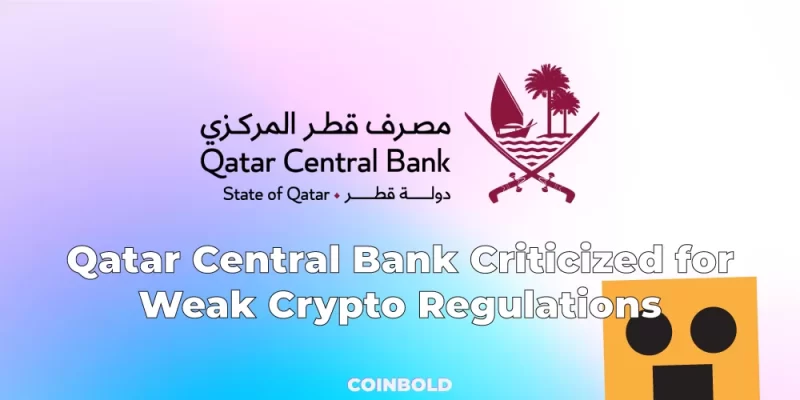The Qatar Central Bank (QCB) has been criticized by the Financial Action Task Force (FATF), a global watchdog that combats money laundering and terrorist financing, for not doing enough to enforce regulations against virtual asset service providers. On May 31, FATF released a report, stating that Qatar needs to improve its capabilities for combating emerging forms of criminal activities, including virtual asset service providers.
In case you missed, find out more about the effectiveness of Qatar’s measures to combat money laundering and terrorist financing in the FATF-MENAFATF mutual evaluation report ➡️https://t.co/CwEJTZnb0M#moneylaundering #terroristfinancing #aml #cft #FollowTheMoney pic.twitter.com/IFiaCRxWju
— FATF (@FATFNews) June 1, 2023
In December 2019, the Qatar Financial Centre Regulatory Authority (QFCRA) announced that it would not permit virtual asset services within or from the Qatar Financial Centre. FATF declared that Qatar must enhance its understanding of more complex money laundering and terrorist financing schemes.
The QFCRA warned that it would impose penalties on any company involved in providing or facilitating the exchange of crypto assets. Despite banning virtual asset service providers, Qatar has revealed its active exploration of potential use cases for a central bank digital currency (CBDC).
The QCB is in the early stages of issuing a CBDC, and it is evaluating the benefits and drawbacks of CBDCs while also determining the appropriate technology and platform to implement such a digital currency. Qatar must strengthen its enforcement of virtual asset regulations while simultaneously navigating the potential introduction of a CBDC, which could reshape the country’s financial landscape.
FATF highlighted the need for stronger controls to ensure the accuracy and timeliness of collected data, as Qatar has made progress in gathering beneficial ownership information through its unified register.
FATF also urged Qatari authorities to improve their investigative efforts against money laundering and asserted that their sophisticated analysis capabilities remain underutilized in identifying instances of illicit financial activities.
Compiled by Coinbold



